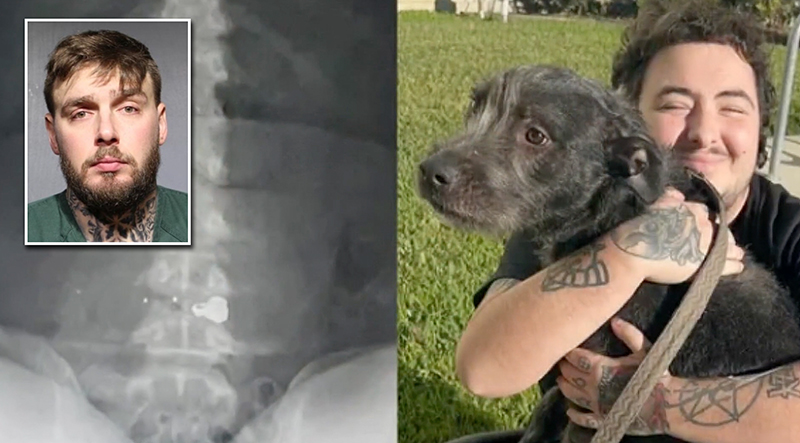Trans Model Murdered in Georgia After Anti-LGBTQ Bill Passes
Kesaria Abramidze, a popular transgender model, was stabbed to death in Tbilisi one day after Georgian lawmakers passed an anti-LGBTQ law.

Kesaria Abramidze, a transgender model in the nation of Georgia, was brutally murdered on the day after the country’s parliament passed a sweeping law restricting the rights and visibility of LGBTQ people.
The 36-year-old former Miss Trans Star International contestant became the first person to come out publicly in the country as transgender. The model and actress had more than half a million followers on Instagram.
Abramidze had been an outspoken critic of the Georgian government, criticizing the ruling right-wing Georgian Dream party’s approach to domestic violence and women’s rights. In April, she was forced to temporarily flee abroad, fearing for her life after being attacked by a former partner.
Abramidze was murdered at her home on September 18 in the Didi Digomi district of Tbilisi. Police reports suggest that she was killed during an argument, with her assailant stabbing her multiple times. She died on scene from injuries suffered during the attack.
Surveillance footage releases by the “Mtavari” TV channel shows a male suspect waiting for the elevator in the building where Abramidze lived. At the end of the video, approximately 15 minutes later, the suspect is seen running down the stairs and exiting the building.
On September 19, law enforcement authorities announced the arrest of 26-year-old Beka Djaiani, charging him with “premeditated murder committed with particular cruelty and aggravating circumstances on gender grounds,” according to the Ministry of Internal Affairs.
Authorities also recovered what they believe was the knife used to commit the murder. According to Jam News, evidence suggests that Djaiani and Abramidze had allegedly been involved in a relationship with one another prior to her murder.
Georgian President Salome Zourabichvili condemned Abramidze’s “horrific murder” in a Facebook post. “The tragedy must awaken Georgian society,” she wrote
Zourabichvili, who holds largely ceremonial powers, has previously criticized efforts by the ruling Georgian Dream party to stoke homophobia and transphobia and push anti-Western, anti-liberal propaganda for political gain ahead of next month’s parliamentary elections.
As part of that agenda, Georgian Dream passed a law purporting to protect minors and so-called “family values” by restricting signs, symbols, and depictions of the LGBTQ community — even those presented in an academic, scientific, or viewpoint-neutral manner.
The law echoes Russia’s law prohibiting the spread of “LGBT propaganda.” It allows the government to abolish Pride events and LGBTQ-centric organizations, punish people for displaying the rainbow flag, and censor films, TV shows, or books with LGBTQ characters.
It also bans same-sex couples from marrying and adopting children, restricts transgender individuals from medically and socially transitioning, bars trans individuals from having their gender identity recognized legally, and bans public endorsements and advocacy on behalf of LGBTQ rights.
The law was passed just a day before Abramidze’s murder. While there does not seem to be a direct connection between the legislation’s passage and her murder, Abramidze’s Instagram posts and videos — even those documenting routine and daily occurrences — would likely have led to her being prosecuted under the new law for presenting as a woman.
Georgia’s own rights ombudsmen warned in 2022 that LGBTQ people in the country “face persistent discrimination and violence in all spheres of life.”
According to Jam News, in the past decade, several high-profile killings of transgender women have attracted headlines, including the murders of Sabi Beriani, who was killed in 2014 after being stabbed nine times, with her assailant later setting her apartment on fire and Bianka Shigurova, who was found dead in her apartment in 2016 under suspicious circumstances, despite her cause of death being attributed to a gas leak.
Zizi Shekeladze died in 2016 after being in a coma for nearly 40 days after being stabbed in the head and neck. Shigurova had previously been targeted for death shortly after Beriani’s murder, when the very same assailant — a frequent client who allegedly solicited sexual services from trans women — reportedly attempted, but failed, to suffocate her.
Get the latest LGBTQ delivered to your inbox. Subscribe to our free magazine and newsletter.
Support Metro Weekly’s Journalism
These are challenging times for news organizations. And yet it’s crucial we stay active and provide vital resources and information to both our local readers and the world. So won’t you please take a moment and consider supporting Metro Weekly with a membership? For as little as $5 a month, you can help ensure Metro Weekly magazine and MetroWeekly.com remain free, viable resources as we provide the best, most diverse, culturally-resonant LGBTQ coverage in both the D.C. region and around the world. Memberships come with exclusive perks and discounts, your own personal digital delivery of each week’s magazine (and an archive), access to our Member's Lounge when it launches this fall, and exclusive members-only items like Metro Weekly Membership Mugs and Tote Bags! Check out all our membership levels here and please join us today!



























You must be logged in to post a comment.